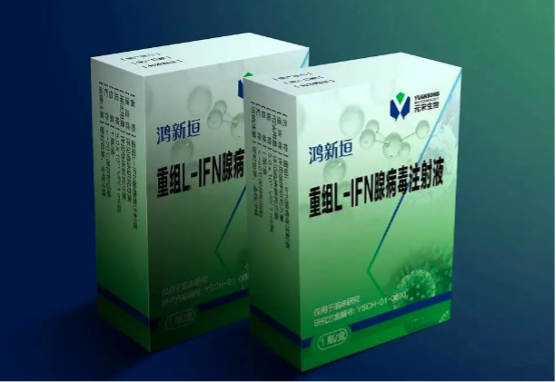Anke Biotechnology’s Joint Venture Company, Yuan Song Biotechnology, Receives FDA Approval for the First Oncolytic Virus National Class I New Drug IND Application
December 26, 2023
Source: drugdu
 352
352

According to the announcement from Anke Biotechnology's joint venture company, Yuan Song Biotechnology: Shanghai Yuan Song Biotechnology Co., Ltd. (hereinafter referred to as "Yuan Song Biotech") announced that its independently developed oncolytic virus anticancer drug, "Recombinant L-IFN Adenovirus Injection," obtained the Investigational New Drug (IND) approval from the United States Food and Drug Administration (FDA) on December 21, 2023.
Dr. Zhang Kangjian, Co-founder and General Manager of Yuan Song Biotech, stated that the successful completion of the IND in the United States is a significant milestone for Yuan Song Biotech, a company dedicated to the development of oncolytic virus anticancer clinical drugs. This achievement not only validates our research and development strategy and technological platform for industrialization but also demonstrates Yuan Song Biotech's clinical development capabilities in the field of targeted gene-virus therapy. This includes oncolytic adenovirus process development, quality method research, high-quality preclinical studies, and clinical research. With the guidance of the clinical operations experience system from two initiated investigator-sponsored clinical studies (IIT), Yuan Song Biotech is confident in proceeding with the clinical trials of this new drug for the treatment of late-stage tumors in an orderly manner, aiming to provide new options and hope for a wider range of cancer patients.
As an innovative cancer immunogene therapy product, Recombinant L-IFN Adenovirus Injection (YSCH-01) is based on the "Cancer Targeted Gene-Virus Therapy (CTGVT)" strategy proposed by Chairman Academician Liu Xinyuan. It utilizes oncolytic adenovirus vectors with dual regulation targeting tumors, carrying the anticancer multifunctional recombinant immune anticancer gene L-IFN. The oncolytic adenovirus vector can selectively replicate in tumor cells, target lysing tumor cells without significant toxicity to normal cells. The inserted therapeutic gene can replicate massively with the virus vector in tumor cells, simultaneously expressing and secreting the L-IFN protein in large quantities. The latter not only has a direct cytotoxic effect on tumor cells but, more importantly, can stimulate the immune system to play a role in immune regulation, thus exerting a dual anti-tumor effect. Existing research results indicate its highly innovative multiple anticancer mechanisms, mainly manifested in the following aspects:
Broad anticancer spectrum, showing significant anticancer effects in at least 7 solid tumor categories. Preclinical in vivo pharmacological data indicate a tumor inhibition rate of 90-100%, with significant distant anticancer effects.
Mainly relies on long-lasting immune memory NK cells for anticancer activity, distinguishing it from the traditional dependence on T cells for anticancer activity seen in other oncolytic viruses.
Significantly enhances the presentation of tumor cell's own antigens, greatly weakening the tumor's immune escape capability.
Can reverse the immune checkpoint protein PD-L1-negative tumors into strong positives, providing a clinical basis for the sequential combination therapy of immune checkpoint inhibitors.
In summary, this is a theoretically superior CTGVT product with excellent clinical development prospects, combining tumor targeting and drug safety.
https://mp.weixin.qq.com/s/xDiFhhSVRgviVTBNyddjSQ
By editorRead more on
- Eli Lilly wins another victory! Regcizosumab submits its marketing application in China March 5, 2026
- Henlius’s potential best-in-class small molecule drug receives its first clinical trial approval March 5, 2026
- New anti-aging drug approved for clinical trials March 5, 2026
- First in the world and first in China, Yahong Pharmaceutical’s non-invasive treatment for cervical precancerous lesions, Cervita, has been approved March 5, 2026
- Its investee company’s PA3-17 injection has received clinical approval for a new indication, expanding the applicable population to children and adolescents March 5, 2026
your submission has already been received.
OK
Subscribe
Please enter a valid Email address!
Submit
The most relevant industry news & insight will be sent to you every two weeks.



